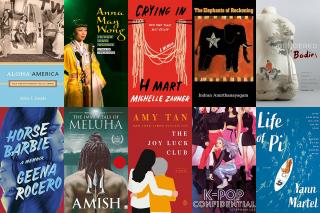From May 1 through May 31, the United States honors persons of Asian, Indigenous Hawaiian, and Pacific Islander descent. Asian American and Pacific Islander (AAPI) Heritage Month celebrates these cultures and how they have enriched American history. For AAPI Month 2024, we have curated a list of books (including novels, memoirs, poetry collections, non-fiction works, academic monographs, and youth literature) and films that recognize the significant cultural contributions of AAPI individuals and communities.

Amirthanayagam, Indran. The Elephants of Reckoning (Hanging Loose Press, 1993). Winner of the 1994 Paterson Poetry Prize, this collection by Indran Amirthanayagam, a Sri Lankan-born poet, essayist, translator, and U.S. diplomat, devises a unique approach to diasporic writing, probing the postcolonial condition via meditations on nostalgia and betrayal.
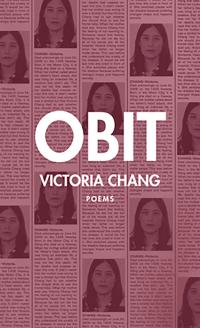
Chang, Victoria. Obit (Copper Canyon Press, 2020). Inspired by the death of her mother, Taiwanese-American poet and writer Victoria Chang offers a powerful meditation on grief and loss while subverting the conventional style of eulogy. According to The New York Times, this award-winning poetry collection shows how “mortality is not a before and after state, but rather a constantly shifting enigma.”
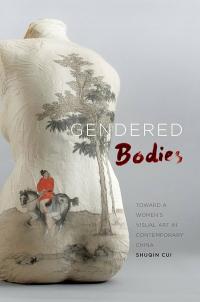
Cui, Shuqin. Gendered Bodies: Toward a Women’s Visual Art in Contemporary China (University of Hawaii Press, 2015). In this examination of female artists and feminine themes within contemporary Chinese art, Cui demonstrates how making art through a gendered lens bestows legitimacy onto women artists. Cui’s study, which includes over 100 color illustrations, shows how these visual artists devise new approaches to history, pain, sexuality, and space.

Golden, Arthur. Memoirs of a Geisha (Vintage Books, 1997). This bestselling novel tells the story of a young peasant girl, Nitta Sayuri, who became a celebrated geisha in Kyoto, Japan during the World War II era. Her fascinating life story conveys the complexities of eroticism, subjugation, and empowerment. Daily Mail describes the book as “one of those rare novels that evokes a vanished world with absolute conviction and in every detail. . . . This book is exceptional.” Golden’s novel was adapted into a 2005 film of the same title, directed by Rob Marshall and starring Zhang Ziyi.
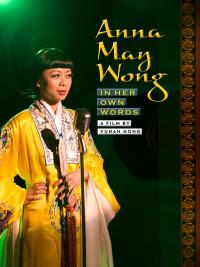
Hong, Yuna, director, Anna May Wong: In Her Own Words (2013). This documentary film chronicles the life of Anna May Wong (1905–1961), the first Chinese-American movie star. In the course of her decorated career, she made dozens of Hollywood films, starring alongside the likes of Marlene Dietrich, Douglas Fairbanks, and other cinematic luminaries. Wong also learned how to navigate cultural stereotypes imposed upon her and overcome racial discrimination within a white-dominated industry.

Imada, Adria. Aloha America: Hula Circuits through the U.S. Empire (Duke University Press, 2012). This scholarly study of hula dancing reveals how Hawaiian hula performers simultaneously fulfilled and resisted the U.S. fantasies of colonization and dominance. Imada explores hula performances on the island, as well as “hula circuits” in vaudeville theaters, international expositions, commercial nightclubs, and military bases. In sum, this book shows the political potential of Indigenous dance within a colonial context.
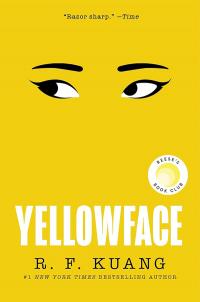
Kuang, Rebecca F. Yellowface (HarperCollins, 2023). This novel satirizes racial diversity within the publishing industry and also functions as a metafiction about social media. According to The Chicago Review of Books, “where [Yellowface] shines is Kuang’s darkly witty tone, critiques of publishing and cultural exploitation, and the all-consuming nature of internet personas.” Kuang’s book won multiple awards, including the New England Book Award for Fiction.
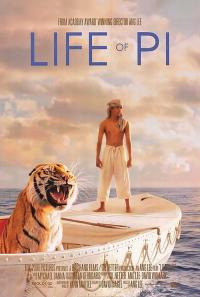
Lee, Ang, director, Life of Pi (2012). In this adventure-fantasy film based on Yann Martel’s 2001 novel of the same name, an Indian teenager named Pi Patel and a Bengal tiger named Richard Parker survive a shipwreck. They spend 227 days stranded on a lifeboat traversing the Pacific Ocean, which invites meditations on survival and adaptation. In the words of legendary film critic Roger Ebert, Life of Pi is a “miraculous achievement of storytelling and a landmark of visual mastery. . . . It is also a moving spiritual achievement.” The film won four Oscars (for Best Director, Best Cinematography, Best Visual Effects, and Best Original Score) at the 2013 Academy Awards.
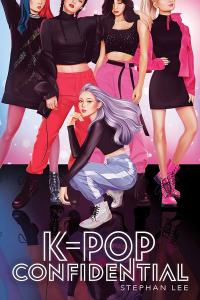
Lee, Steven. K-Pop Confidential (Point Publishing, 2020). This coming-of-age young adult novel tells the story of Candace Park, a Korean-American girl who travels to Seoul in hopes of joining a K-pop group. As Park navigates the industry, she learns lessons in sacrifice, discipline, and romance. For Publishers Weekly, “Debut author Lee captures the fun of K-pop music while exploring a factory where young women are scrutinized . . . but it’s Candace’s sense of self-worth that will get readers to cheer.” Lee has since published a sequel, K-Pop Revolution (Point Publishing, 2022).
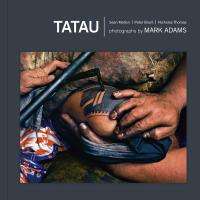
Mallon, Sean, Peter Brunt, and Nicholas Thomas, with photographs by Mark Adams. Tatau: Samoan Tattoo, New Zealand Art, Global Culture (University of Hawaii, 2010 and 2023). Containing over 400 color photographs of Polynesian art and expressions of tatau (tattoo), this text celebrates the tradition of body art in Indigenous culture. The revised 2023 edition includes essays by distinguished scholars that situate the imagery within specific historical, political, and cultural contexts.
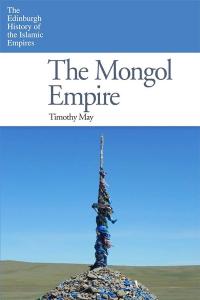
May, Timothy. The Mongol Empire (Edinburgh University Press, 2018). Originating in present-day Mongolia and spreading through Central Asia, East Asia, South Asia, the Levant, Eastern Europe, and the Arctic, the Mongol Empire (c. 1206–1368) emerged as the largest contiguous empire in human history. Feared as skilled horsemen and formidable warriors, the Mongols also practiced religious tolerance and welcomed cross-cultural exchange. This comprehensive historical account informs and challenges traditional conceptions of colonization and imperialism.
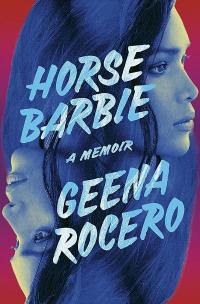
Rocero, Geena. Horse Barbie: A Memoir of Reclamation (Penguin Random House and Dial Press Trade, 2024). This memoir centers around Geena Rocero, a transgender woman who grew up in the Philippines during the 1990s. Rocero flourished in the trans pageant scene, and came to embrace her nickname “Horse Barbie.” Described as “a moving chronicle of trans resilience and joy” by Vogue magazine, this text encompasses a story of survival, love, and self-acceptance.
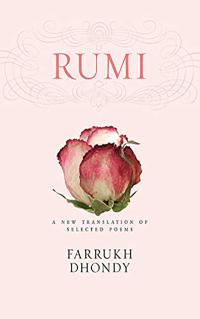
Rumi, Jalāl al-Dīn Muḥammad. Rumi: A New Translation of Selected Poems. Translated by Farrukh Dhondy (Sky Horse Publishing, 2013). During the thirteenth century, the great Persian poet and practitioner of Sufism (Islamic mysticism) Rumi composed exquisite poetry about divine love and longing. His signature style mines the themes of devotion, rapture, and unity. In this new translation, Farrukh Dhondy restores the lyric beauty and spiritual potency of Rumi’s original verses.
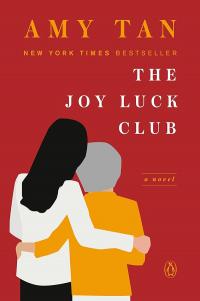
Tan, Amy. The Joy Luck Club (G.P. Putnam’s Sons, 1989). This breakthrough novel by Chinese-American author Amy Tan weaves a story of four Chinese immigrant families who settled in San Francisco in the 1940s. Together, they form The Joy Luck Club, in which they play the traditional Chinese game of mahjong while feasting on diverse foods. Tan’s book taps into the themes of mother-daughter relationships and cultural identity. Her novel was adapted into a 1993 film of the same name, directed by Wayne Wang.
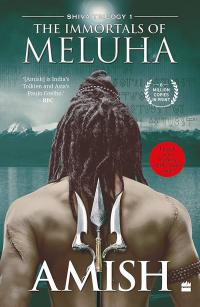
Tripathi, Amish. The Immortals of Melhua (Westland Limited, 2010). This novel rewrites Hindu mythology, recounting how Lord Shiva — the god of creation, destruction, and dance — was once a human being but, on account of his great deeds, became divinized. Although Tripathi’s premise is controversial, the book was wildly successful upon its release. This novel is the first of Tripathi’s Lord Shiva Trilogy, followed by The Secret of the Nagas in 2011 and The Oath of the Vayuputras in 2013.
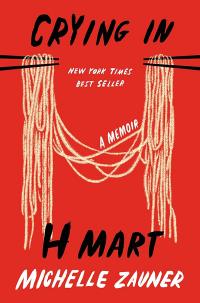
Zauner, Michelle. Crying in H Mart (Knopf, 2021). This memoir, which began as a 2018 New Yorker essay of the same name, is the debut book of Michelle Zauner, leader of the American indie pop band Japanese Breakfast. Zauner recounts growing up as a minority in Eugene, Oregon, and reclaiming her Asian identity in adulthood. In an intimate and forthcoming style, she addresses issues of family, food, music, grief, and endurance.

